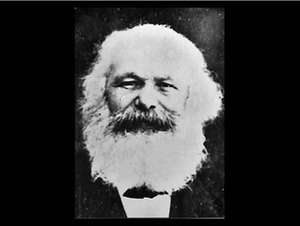This is an archive of the ArtCat Zine, 2007-2009. Please visit our new project, IDIOM.
Love & Hate at TANK.TV
Love & Hate
Online exhibition at TANK.TV
Nada Prlja, Nemanja Cvijanovic, Nikola Uzunovski,
Zaneta Vangeli, Vesna Milicevic, Olgica Dimitrovska,
Nemanja Cvijanovic, Skart.
October 2007 - November 2007
This month's edition of UK-based TANK.TV video exhibition platform features a group of Eastern European artists working in video and addressing the geopolitical realities of a now defunct Yugoslav state. The works on view are of an overwhelmingly sober mood, quite a few of them silent, explicitly emerging out of a cultural milieu in which the the spectacle of late capitalism has all but eclipsed much international interest in the complex systems of social- and power relations forming to fill the ideological voids in a number of failed socialist and communist national projects. While resonances of the wide-ranging encroachment of decrentralized systems of inequity may be perceived if we look at countries like Vietnam, gravely moving away from its hard-won socialist past towards a global-economy future (a move that is the primary subject of Jeffrey Skoller' new three-part video work The Promise of Happiness which premiered at 16beaver some weeks ago) there is still something distinct happening in Eastern Europe, a place where notions of identity are never fixed.
Since as early as the Italian Renaissance and the rise of a self-conscious Western European cultural identity, the people of the Balkans and Eastern Europe have been denied access to the abstracted cultural lineage of a proud Western Eurocentrism. Caught for many centuries between the imperial rule of a constantly shifting Ottoman Empire, only to be replaced later by subjugation or the threat thereof by Austro-Hungarian rule, Nazi rule, and later an expanding Russian communist superpower, the people of the the Yugoslav state and its bordering nations were neither firmly Occidental nor Oriental subjects, forming identities, instead, to centers of power on relational and often implicitly fleeting terms.
Thus Macedonian artist Nada Prlja, performs indecisively in her video WEST, where she can't decide whether she wants to face East or West. She eventually wipes the former mark from her countenance only to transform the sign into a black smear that is at once evocative of both a high-fashion make-up advertisement and a chilling marker of domestic violence. Croatian artist Nemanja Cvijanovic meanwhile presents a video animation of an older Marx silent and repeatedly shedding a nearly imperceptible tear. But is Marx bemoaning the rise of global capitalism or the fact that his critical work may now have more currency among academics than revolutionaries? Serbian artist Nikola Uzunovski aestheticizes television static in Snowfall, a distinctly socialist condition apparently, reflecting on a time when the now never-ending televised stream of commercial programming would stop at a "media curfew" (11pm in Socialist Yugoslavia). Finally, there is the work of Belgrade-based art collective Skart, who present documentation of an organized public choir singing, appropriating an older propagandistic political form used in Yugoslavia's earlier days to create images of national unity. The image resulting in the video Pesma izdradnje is one of a popular resistance to the oppressive powers at home and abroad by a young populace in waiting, unsympathetic to the political extremism steadily in the making for many years and trapped in a turn of the century Yugoslavia under closed borders and an economic and military siege from nations both local and distant.
ZINE
HOME
TIPS / COMMENTS
CATEGORIES
CONTRIBUTORS
- Greg Afinogenov
- B. Blagojevic
- Adda Birnir
- Susannah Edelbaum
- Julie Fishkin
- Paddy Johnson
- Jessica Loudis
- Christopher Reiger
- Andrew Robinson
- Peter J. Russo
- Blythe Sheldon
- S.C.Squibb
- Hrag Vartanian

